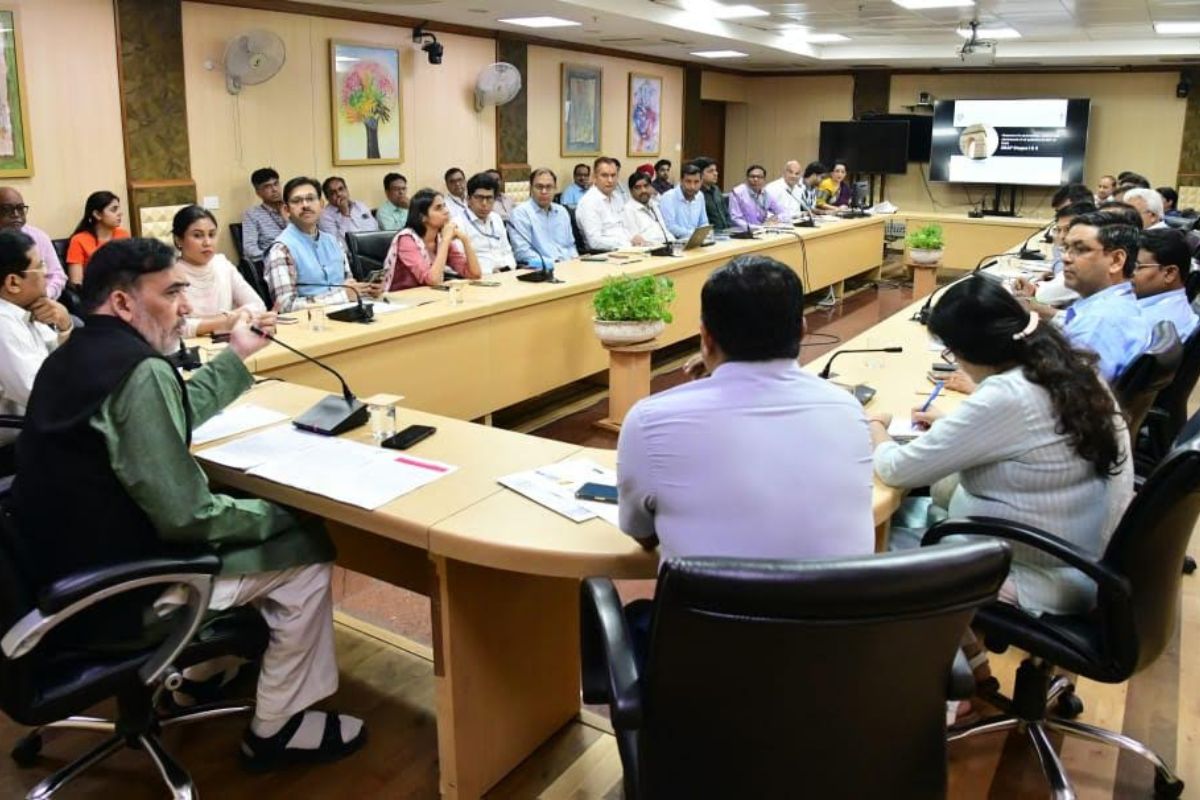Critical Minerals Summit in Delhi from Monday
The Ministry of Mines will hold a Critical Minerals Summit from April 29 to April 30 at the India Habitat Centre in Lodhi Estate, New Delhi, the ministry said in a press note on Sunday.
A total of 28 departments are working together against pollution in Delhi, to ensure strict implementation of GRAP 2.

Delhi Environment Minister Gopal Rai on Monday said due to the decreasing temperature and slowing down of winds, the AQI in the national capital has reached above 300. Keeping that in mind, CAQM (Commission for Air Quality Management) instructed to implement the GRAP stage 2 (Graded Response Action Plan).
A total of 28 departments are working together against pollution in Delhi, to ensure strict implementation of GRAP 2.
He said the Delhi government has also decided to increase the frequency of Metro and DTC Buses under the regulation of GRAP.
Advertisement
“DMRC has been directed that where the frequency is 7-8 minutes, reduce it to 5-6 minutes. And where it is 5-6 minutes, which implies there is a lot of crowd that’s why it is less, further reduce it to 2-3 minutes. So that more and more people can enjoy public transport,” he said.
Rai said the DTC is also instructed to increase the frequency of the buses already in operation and get more buses on the road. “Along with this, the acquisition of private buses must begin to start environmental bus service. So that use of public transport can be promoted,” he said.
He said Chief Minister Arvind Kejriwal announced the Winter Action Plan with these departments. A lot of work is being done according to the plan. However, the implementation of GRAP 2 was announced looking at the degrading Air Quality in Delhi.
“In our meeting with the Departments, many crucial decisions have been made today. The first major decision is the identification of 13 major pollution hotspots in Delhi. These 13 places have worse Air quality than an average Delhi neighborhood. Apart from these, 8 other areas have been identified which had AQI above 300 today due to local factors,” Rai said.
Rai revealed that these areas are Shadipur, ITO, Patparganj, Mandir Marg, Nehru Nagar, Sonia Vihar, Dhyan Chand Stadium, and Moti Bagh.
“Nodal MCD DCs have been instructed to disperse special teams in these areas to inspect local sources jointly with DPCC. They will focus on the sources of pollution whether it be BioMass burning, dust, congestion, or cars,” he said.
Rai said the city government had announced a separate Winter Plan for the 13 hotspot areas. “Now these 8 areas are also identified in special categories along with the 13 areas. Special teams will be deployed for close monitoring of these areas,” he said.
Rai further said the DCs are directed to do field visits on October 25 in the hotspot areas. They will accelerate the measures taken to counter pollution in those areas.
Rai said Delhi’s air quality in the winter months had been deteriorating in the past.
“As we suspected, the air quality in the next 20-25 days in Delhi can turn bad. In today’s meeting, secretaries of all the departments were called, but we noted that the secretaries, who are heads of their respective departments, pollution is not the primary issue for them yet,” Rai said.
“Not even one secretary joined today’s meeting. And representatives from many departments came, who did not know anything about GRAP 2 preparations in their respective departments yet,” he said.
“So I request all the secretaries, heads of distinct departments, that this month is the most crucial to work in the war zone, on the field. I say this to the Chief Secretary as well to ensure all secretaries on this,” he said.
“It is quite hard to implement anything in any department until senior officers are in Action mode. Since today is the first time that Air Quality soared above 300, we hope that all officers have become attentive, along with their departments. And I feel we will follow implementation more seriously,” Rai said.
Advertisement